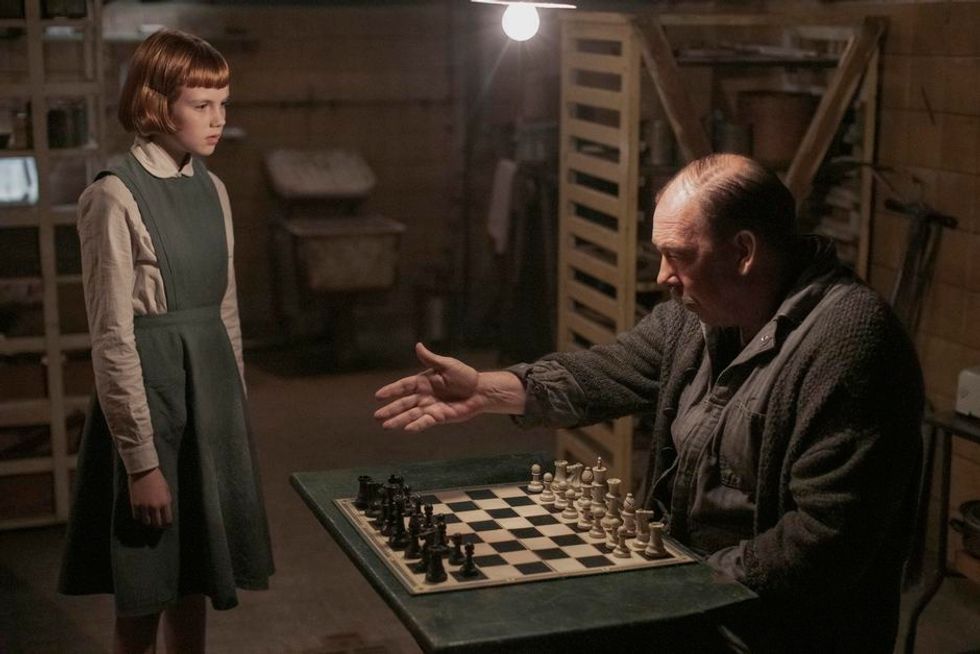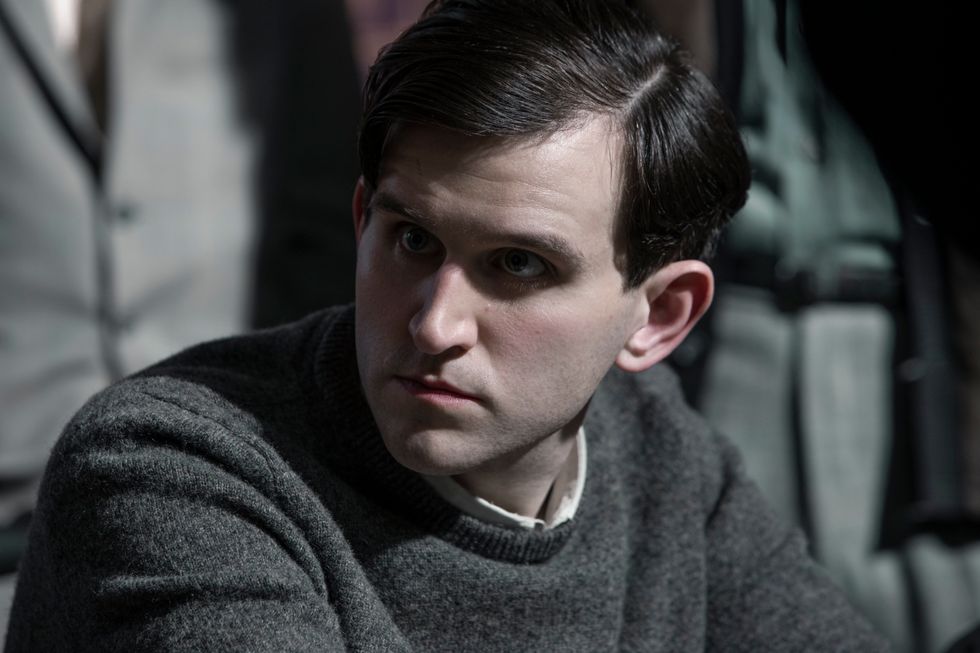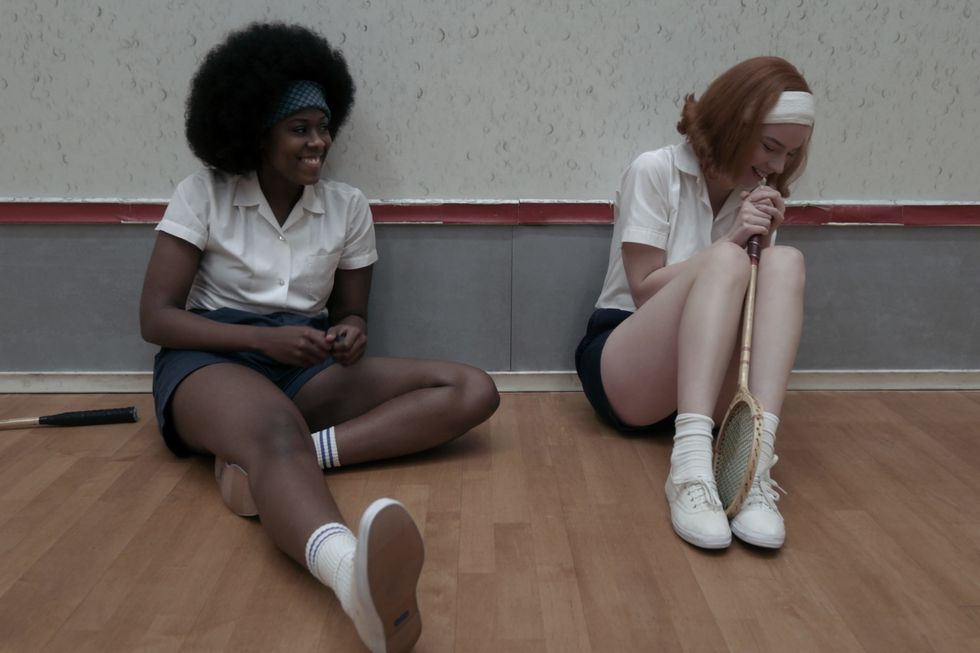Tv
Review: “The Queen’s Gambit” Is Less About Chess and More About Beth’s Damaged Relationships
18 Nov, 20

The Queen's Gambit
Netflix
Netflix’s The Queen’s Gambit rose to prominence last month, becoming the network’s most buzzed-about show.
The 7-episode series tells the story of Beth Harmon, a young orphan and chess prodigy whose obsession with chess closely overlaps with drug addiction. Based on a novel by Walter Tevis, the show mostly consists of high-drama chess matches and long shots of Anya Taylor-Joy’s massive eyes.
But punctuating Beth’s many solo scenes—and perhaps forming the most interesting part of the series—are a number of brief, fractured relationships. When Beth interacts with other people, her actions are usually short and stilted. There is little small talk, no hello and goodbye, and no warmth.
An early friendship with a janitor who teaches Beth how to play chess is perhaps one of her most significant relationships; but while the two do indeed share a genuine connection, even his relationship with her is stilted.
At one point, instead of talking to Beth about her drug abuse problem, the janitor simply locks the door to the basement and shuts her out without a word. There is little communication or connection and no explanation for many sudden silences. Beth only discovers he was keeping tabs of her chess achievements after his death, a heartwarming moment that also feels extra wrenching because it’s too little too late.

In general, Beth meets almost every act of friendliness with a cold stare, icing out everyone who attempts to support her (unless they can connect through chess). This is a pattern throughout her life and one of the show’s main themes.
The few people Beth connects with generally end up betraying her. A prolonged, painful romance with an attractive chess player known only as Townes goes poorly, to say the least. After her adoptive father cuts and runs, Beth’s adoptive mother tells her she wasn’t wanted at all. Later, they finally forge a bond thanks to Beth’s financial success in chess, only for an unbelievable tragedy to strike at a critical moment. Beth is forced to respond with almost no help at all.
Then, when it seems like Beth will form a lasting connection with Harry Baltik (played by a very miraculously good-looking Dudley Dursley), who shows up in Beth’s time of need, even he eventually abandons her. The whole time, Beth shows little emotion, confesses nothing, and leans on no one.

An exception to the rule is Benny, the show’s resident chess pirate who Beth actually abandons, perhaps in an effort to reverse the narrative and gain control over her life. Though the two eventually reconnect, their relationship never flows smoothly (perhaps because Benny is a chess pirate).
![Beth and ]]]]]]](https://www.popdust.com/wp-content/uploads/2024/09/e56ef9006349a73cbb572845935d1b81.jpg)
Perhaps the only person Beth is capable of truly opening up to is her friend Jolene, whom she meets in the orphanage as a young child. Jolene’s storyline is unfortunately underwritten and merits its own critiques. In the end, Jolene mostly functions as a receptacle for Beth’s pain when she’s at her lowest point. (Jolene also literally saves Beth, paying for her entire trip to Russia). Unfortunately, Jolene is forced to act more as a therapist than a friend.

All of these failed relationships seem to stem from Beth’s relationship with her mother, an unhinged woman whose scattershot advice contains beads of wisdom but whose actions ultimately wound her daughter beyond belief.
In light of all Beth’s broken relationships, chess becomes a life force—both in the show and in her life. It’s the only thing Beth is capable of controlling and the only thing that will never leave her.
The Queen’s Gambit may be about chess, but it’s also an examination of how silence and coldness can be used as a defense and a weapon. The 1950s were, famously, a time when WASPy silence reached its peak and pushed many people, specifically women, to the breaking point.
The postwar generation, stoic, restricted, traumatized, and viciously unequal as it was, led directly to the countercultural revolution. In some ways, Beth’s journey is a mirror of this progression. It begins with a terrible traumatic events, then steels itself into silence that is channeled into a compulsive need to expand and win at all costs. When Beth finally emerges, she’s left behind a tapestry of ruined relationships and empty bottles.
The Queen’s Gambit doesn’t offer comforting diatribes about how to end this cycle. It merely exposes human relationships at their most toxic and then explores the ways that obsessions and winning can be band-aids used by people unable to connect in genuine ways. Any obsession can become a way of filling a void, and endless winning can be a way of making up for a lack of love—to a point, of course.
In the final scene, Beth, fresh off a fateful competition in Russia, appears to leave her American compatriots to start a new life with some elderly chess-playing Russians. Perhaps for people as damaged as Beth, freedom can only come from literally leaving America and learning an entirely new language. Speaking from modern America, this seems like an increasingly good option.













